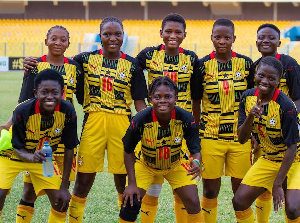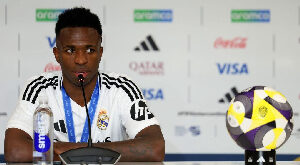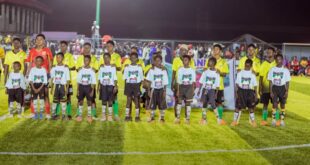Ghana will appeal against a fine and ban imposed on its women’s Under-17 football team after being found guilty of age-cheating.
Last month Morocco edged past Ghana on penalties to qualify for the 2022 Women’s U17 World Cup but subsequently launched a protest about their opponents.
The North Africans claimed two players in the Black Maidens side were over-age.
The Confederation of African Football (Caf) investigated the claims and banned Ghana from the next two editions of Africa’s qualifying for the Women’s U17 World Cup and added a fine of $100,000.
The Ghana Football Association (GFA) said it will appeal in writing to Caf.
“We previously sent a written defence when this allegation started,” a top GFA official told BBC Sport Africa.
“As a body, we are strongly confident in the Caf’s appeals board to overturn this decision.”
It is not the first time that Ghana has been accused of age cheating at youth level.
Back in 2014, the men’s U17 side were banned from the 2015 U17 Africa Cup of Nations after being found guilty of age cheating in a qualifier against Cameroon, with the central Africans replacing Ghana at the tournament held in Niger.
Tackling age cheats in Cameroon
Meanwhile, a Cameroon Football Federation (Fecafoot) ethics committee has begun hearings involving 44 players from eight different clubs who are accused of age and/or identity fraud.
Players from amateur clubs and a few from local leagues are being investigated, and several club presidents accused of complicity are also involved in the cases.
Fecafoot official Emeric Tegomo told the BBC that players found guilty at the hearings, which are scheduled to end on Friday, risk a six-month suspension.
The hearings are a rare effort in Africa to stop age-cheating or identity fraud, which has long been a major source of concern in the game across the continent.
Accusations of cheating are regularly made – and many of Africa’s international successes in junior tournaments have been clouded by allegations of use of over-age players – but methods have been introduced in an attempt to stop it.
World governing body Fifa began conducting MRI scans at the U17 World Cup in Nigeria in 2009, focusing on players’ wrists to calculate their ages.
In 2017 Fecafoot blocked 14 players from taking part in the U17 Africa Cup of Nations in Gabon after they failed MRI tests, which provide detailed images from inside the body.
Fecafoot president Samuel Eto’o, the former Cameroon, Barcelona and Inter Milan striker, promised reform of the game in the central African country when he was elected in December.
BBC.COM
 Home Of Ghana News Ghana News, Entertainment And More
Home Of Ghana News Ghana News, Entertainment And More





